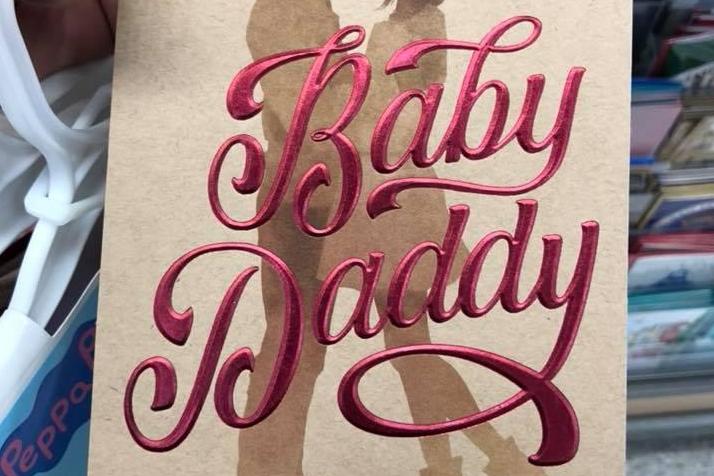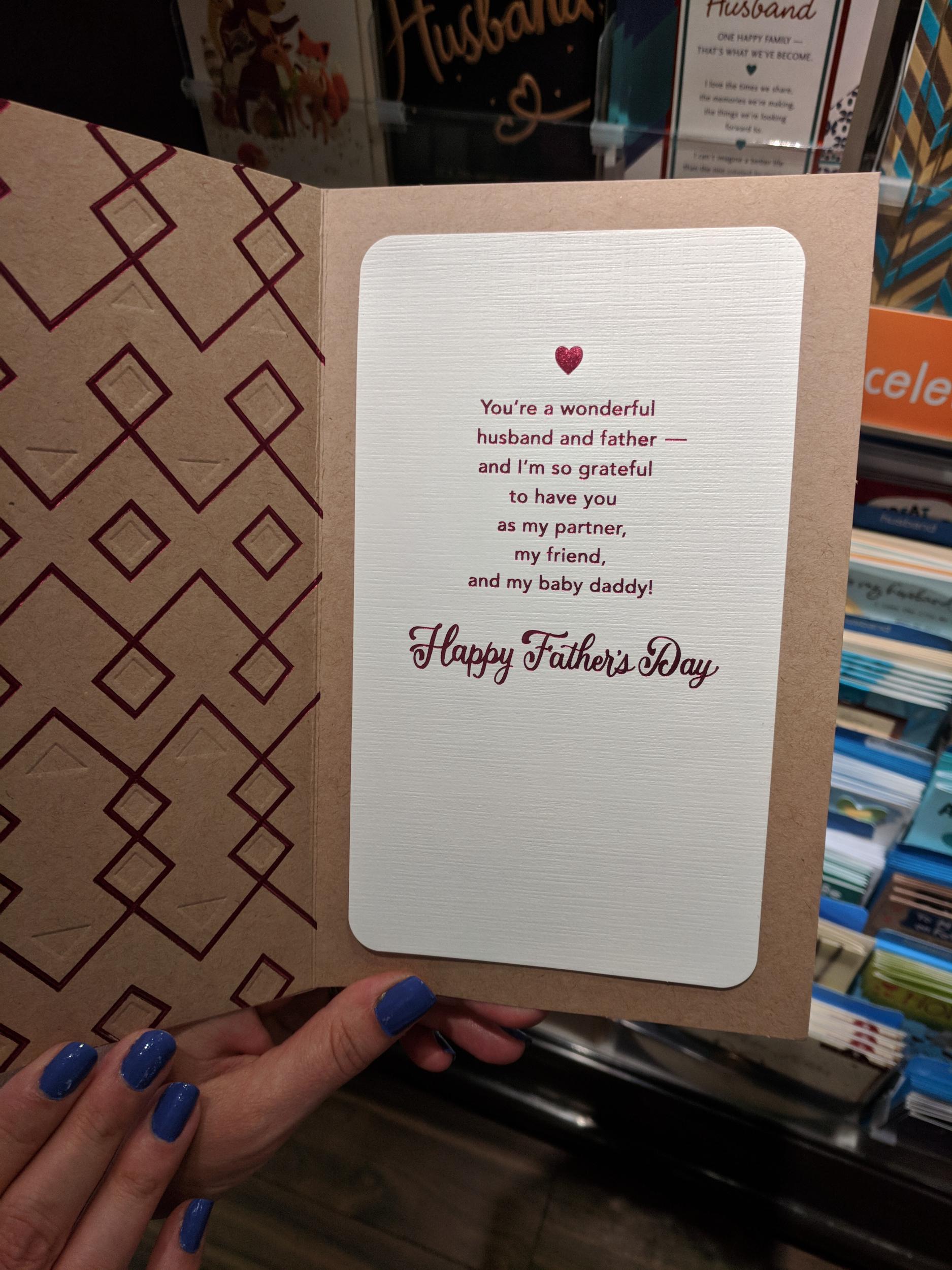Target removes 'Baby Daddy' cards after people called it an 'insult to black fathers'
The retailer has issued an apology in light of the backlash

Your support helps us to tell the story
From reproductive rights to climate change to Big Tech, The Independent is on the ground when the story is developing. Whether it's investigating the financials of Elon Musk's pro-Trump PAC or producing our latest documentary, 'The A Word', which shines a light on the American women fighting for reproductive rights, we know how important it is to parse out the facts from the messaging.
At such a critical moment in US history, we need reporters on the ground. Your donation allows us to keep sending journalists to speak to both sides of the story.
The Independent is trusted by Americans across the entire political spectrum. And unlike many other quality news outlets, we choose not to lock Americans out of our reporting and analysis with paywalls. We believe quality journalism should be available to everyone, paid for by those who can afford it.
Your support makes all the difference.Target has removed its “Baby Daddy” Father’s Day card after shoppers called them “an insult to black fathers”.
The card was widely criticised online after one customer expressed her outrage in a Facebook post alongside a photograph she had taken in the shop.
“You CANNOT be serious Target!” Takeisha Saunders wrote in the post, which has since garnered hundreds of similarly outraged responses across social media.
Saunders also claimed that it was the only Father’s Day card in the store featuring a black couple, writing:
“Really!!!?!!!!? This was the only Father’s Day card that featured a black couple!!!!!!”
Speaking to Fox News, Saunders confirmed that she came across the card in a Target outlet in Rockwell, Texas.
One commenter responded to Saunders' post by uploading a snap of the inside of the card, which featured a poem praising the recipient as a “wonderful husband and father”.
However, this did not assuage Saunders’ concerns, who responded by explaining she ran the card by her husband who said he would have been upset had he received it in spite of the heartfelt poem inside “because of what the term generally means in our culture.
“It’s not sweet or nice,” she added, “It’s a term used to describe a deadbeat or absent parent.”
Others expressed their shock by sharing Saunders’ post on Twitter:
“Seriously @Target???? Baby Daddy is not a term of endearment. This is an insult to black fathers and a slap in the face to the African-American community as a whole. There are plenty of black men that are EXCELLENT FATHERS, not ‘baby daddies’!!!” wrote one person.
“What in the microagression racism is this @target? [sic]” added another.
The furore caught the attention of the US retailer, who responded with an apologetic statement on Twitter on Tuesday:
“We assure you it is never our intention to offend our guests with the merchandise we provide. We sincerely apologize to anyone this particular card has offended. Please verify the store location this was displayed so we can share your feedback.”
They have since removed the cards from its stores, Target revealed in a statement given to Fox News.
"We want all guests to feel welcomed and respected when they shop at Target," said Target spokesperson Joshua Thomas.
"We were made aware of some concerns about this card last week and are working with our vendor to have it removed from Target stores.”
Saunders explained that she understood Target did not create the card themselves - it was produced by American Greetings - but she hopes that her Facebook post and the subsequent comments online have “shed some light” on why it might’ve caused offence.

“I would hope that [American Greetings] and Target’s purchasers would become more aware of the items on their shelves and how they may not have the desired impact on the targeted demographic consumers,” she added.
A spokesperson for American Greetings tells The Independent that the card was created with "a loving husband" in mind:
"However, we now see that the front page, taken out of context, can communicate an unintentional meaning that we are strongly against perpetuating and is not consistent with our company purpose and values.
"We should do better in the future, and we will. We have notified our store merchandisers to remove the card from all retailer shelves and apologise for any offence we’ve caused."
Join our commenting forum
Join thought-provoking conversations, follow other Independent readers and see their replies
Comments